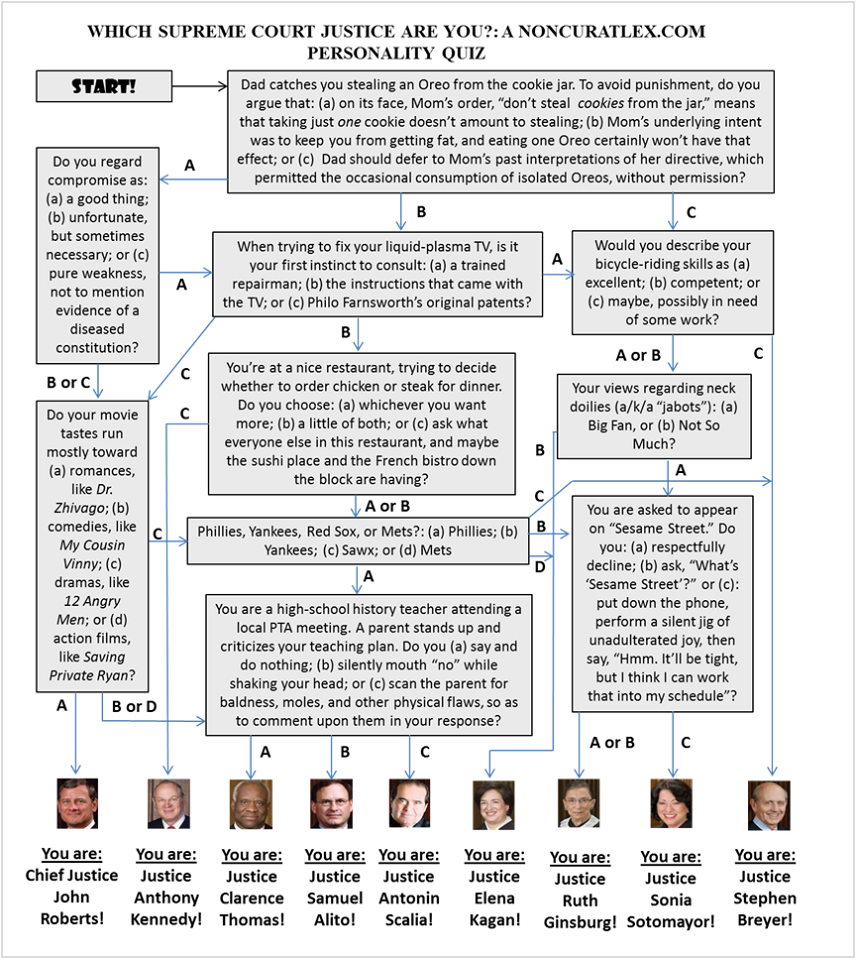!["League of Legends Ahri - cosplay" by Korixxkairi [CC BY-ND 3.0], via deviantart league_of_legends_ahri___cosplay_by_korixxkairi-d5yg32a](http://crypticphilosopher.com/wp-content/uploads/2013/07/league_of_legends_ahri___cosplay_by_korixxkairi-d5yg32a-300x199.jpg) Sometimes Texas’ criminal justice system gets so twisted around, I find myself favorably quoting something from the National Review. This is the story of Justin Carter, a now-19-year-old Texan who made a flippant remark in an online argument about the video game “League of Legends,” and is now in jail for making a “terroristic threat.” When he was still 18 years old, Carter responded to someone calling him “insane,” “crazy,” and other hyperbolic taunts by saying “Oh yeah, I’m real messed up in the head, I’m going to go shoot up a school full of kids and eat their still, beating hearts.” He reportedly followed that up with “lol” and “jk.”
Sometimes Texas’ criminal justice system gets so twisted around, I find myself favorably quoting something from the National Review. This is the story of Justin Carter, a now-19-year-old Texan who made a flippant remark in an online argument about the video game “League of Legends,” and is now in jail for making a “terroristic threat.” When he was still 18 years old, Carter responded to someone calling him “insane,” “crazy,” and other hyperbolic taunts by saying “Oh yeah, I’m real messed up in the head, I’m going to go shoot up a school full of kids and eat their still, beating hearts.” He reportedly followed that up with “lol” and “jk.”
One might be tempted to think that this was a teenager being a pompous teenager, without any thought to the fact that anyone in the whole world could read what he just wrote. That includes a woman in Canada, who, according to the National Review‘s Charles C.W. Cooke, “inexactly described herself as a ‘concerned citizen'” and reported Carter to Texas police. She apparently did this after she noticed that Carter lived near an elementary school. I have no idea if that means “next door to” or “in the same zip code as” an elementary school, but it was enough for Austin police to arrest him and charge him with making a terroristic threat.
“Terroristic threat” sounds worse than it is under Texas law, but it’s still very serious. This is where the case gets odd. Texas Penal Code § 22.07(a) defines “terroristic threat” as follows:
A person commits an offense if he threatens to commit any offense involving violence to any person or property with intent to:
(1) cause a reaction of any type to his threat by an official or volunteer agency organized to deal with emergencies;
(2) place any person in fear of imminent serious bodily injury;
(3) prevent or interrupt the occupation or use of a building, room, place of assembly, place to which the public has access, place of employment or occupation, aircraft, automobile, or other form of conveyance, or other public place;
(4) cause impairment or interruption of public communications, public transportation, public water, gas, or power supply or other public service;
(5) place the public or a substantial group of the public in fear of serious bodily injury; or
(6) influence the conduct or activities of a branch or agency of the federal government, the state, or a political subdivision of the state.
(Emphasis added.) Offenses under (1) and (2) are usually Class B misdemeanors. An offense under (3) is a Class A misdemeanor, and offenses under (4) through (6) are third-degree felonies.
In theory, the state has to prove that Carter intended to cause fear or a disturbance, meaning that he knew such a result was likely and he wanted it to happen. The “lol” and “jk,” if you attempt to put yourself in the mind of a teenager, would seem to dispel any evidence of intent. It is also worth considering whether his comments were directed to any specific person or place. He was not specific as to a “target,” and it requires something of a leap to go from a stupid taunt on the internet to an actual plan.
The National Review launched a petition to “Free Justin Carter Now” that, according to Pajamas Media (a blog I might never otherwise go near), has at least 25,000 signatures.
Now, of course, the counter-argument: I do not for one second condone the actions of Austin police or, presumably, Travis County prosecutors in pursuing this case. I have a hypothesis as to why they initially took it so seriously, though: Newtown, Connecticut. If Justin Carter had gone and shot up an elementary school, and it turned out that police knew he had made a stupid threat on the internet…..it would not have been good for more than a few city, county, and maybe even state officials. Once they figured out, presumably, that Carter had no actual intention of doing anything other than bluster, continuing to prosecute him strikes me as a raw abuse of power. Maybe they hope to make an example of him, but that seems pretty inexcusably authoritarian.
Photo credit: “League of Legends Ahri – cosplay” by Korixxkairi [CC BY-ND 3.0], via deviantart.


![By Wing-Chi Poon (Own work) [CC-BY-SA-2.5 (http://creativecommons.org/licenses/by-sa/2.5)], via Wikimedia Commons 800px-Entering_Arizona_on_I-10_Westbound](http://crypticphilosopher.com/wp-content/uploads/2013/07/800px-Entering_Arizona_on_I-10_Westbound-300x199.jpg) Arizona passed
Arizona passed 
![By Liftarn [Public domain, GFDL (http://www.gnu.org/copyleft/fdl.html), CC-BY-SA-3.0 (http://creativecommons.org/licenses/by-sa/3.0/) or CC-BY-SA-1.0 (http://creativecommons.org/licenses/by-sa/1.0)], via Wikimedia Commons 192px-Stop_sign_plus_silhouette.svg](http://crypticphilosopher.com/wp-content/uploads/2013/06/192px-Stop_sign_plus_silhouette.svg_.png) I quit the active practice of law in 2011. While I still have a few cases I’m wrapping up, I last took on a client more than two years ago. This means that, although I still have an active law license, I do not want to help you with your legal matter.
I quit the active practice of law in 2011. While I still have a few cases I’m wrapping up, I last took on a client more than two years ago. This means that, although I still have an active law license, I do not want to help you with your legal matter. I return to my hallowed tradition of
I return to my hallowed tradition of ![Via bitrebels.com [Fair use] Via bitrebels.com [Fair use]](http://crypticphilosopher.com/wp-content/uploads/2013/06/body-painting-floor-plan-1.jpg)


![By pvsbond (TBS Analyst David Wells) [CC-BY-SA-2.0 (http://creativecommons.org/licenses/by-sa/2.0)], via Wikimedia Commons We even have the same hairdo.](http://crypticphilosopher.com/wp-content/uploads/2013/05/800px-TBS_Analyst_David_Wells.jpg)
![By Dinkum (Own work) [CC0], via Wikimedia Commons Au_marché_-_choux](http://crypticphilosopher.com/wp-content/uploads/2013/05/Au_marché_-_choux-300x225.jpg)
![By David B. Langston [CC-BY-3.0 (http://creativecommons.org/licenses/by/3.0)], via Wikimedia Commons Black_rot_of_cabbage_symptoms](http://crypticphilosopher.com/wp-content/uploads/2013/05/Black_rot_of_cabbage_symptoms-300x225.jpg)
